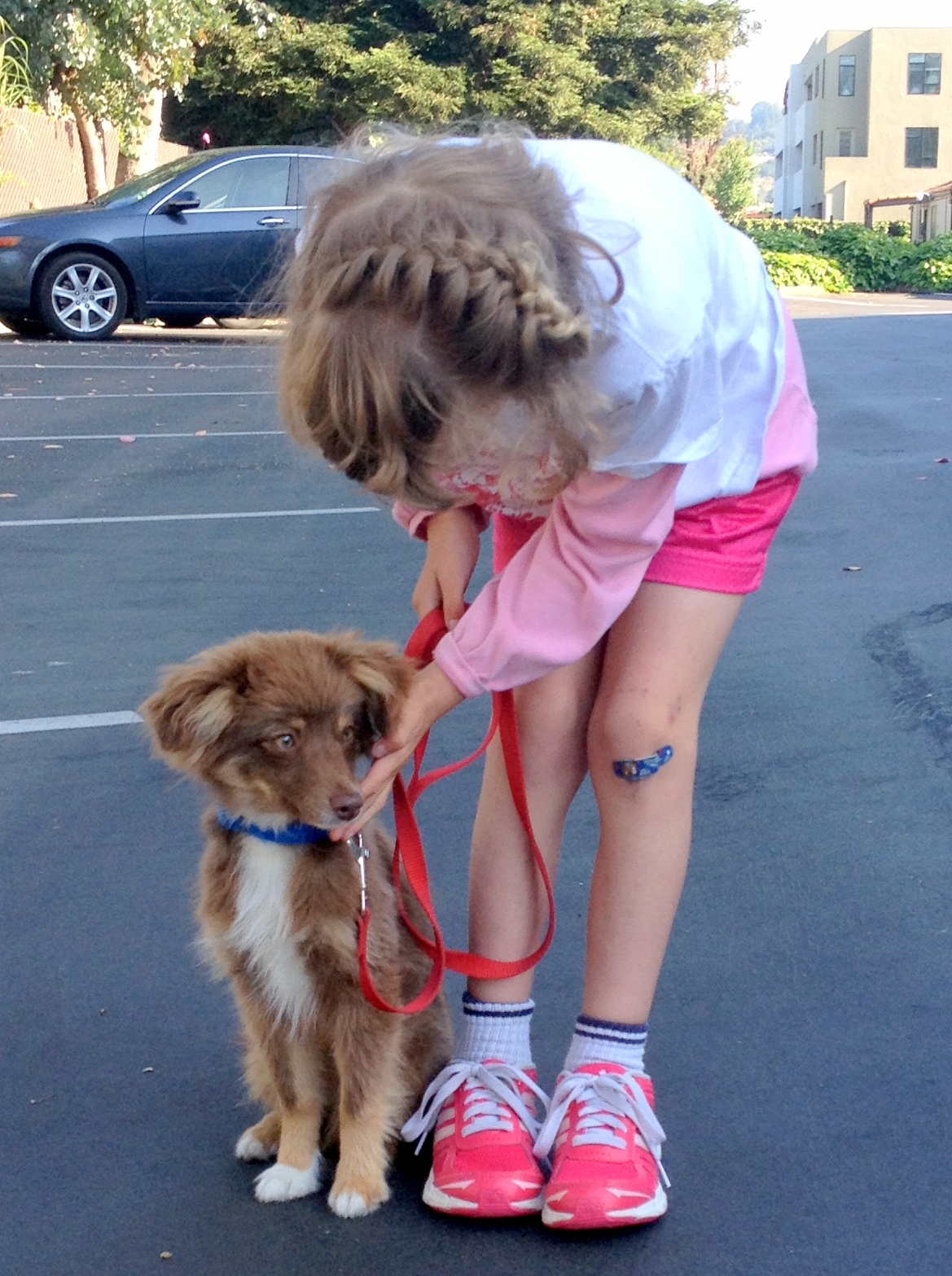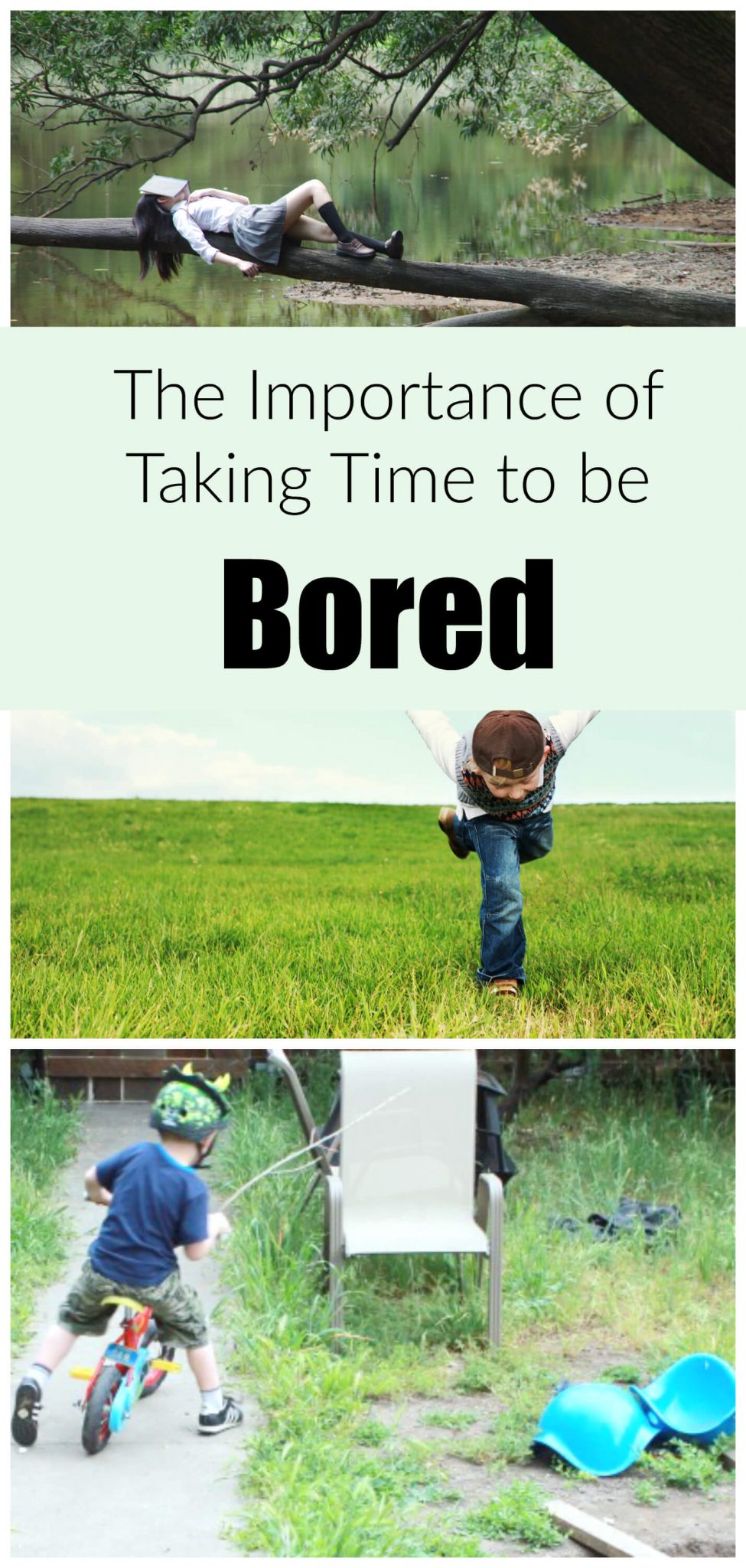
“I’m bored!”
How many of us have heard that complaint, and felt like we weren’t providing enough for our children to do?
All the activities and lessons aimed at children sure make it feel like they they aren’t experiencing a real childhood unless they’re ‘pursuing their passions’ through scheduled activities. But is this what is best for their development?
When I hear my children say, “I’m bored” I realize I probably have been entertaining them too much, and they’ve forgotten how to entertain themselves. To help them cope with boredom, and expand their creativity and resilience in the process, I intentionally allow for time for them to be bored on a regular basis.
I am raising future adults rather than children who will be this age forever. While it can seem harmless to drop a preschooler off at drop-in daycare so they won’t be bored while you run errands, or hand them an ipad to watch cartoons on a 20-minute car ride, by doing so we are creating 10, 15, 20-year-olds who have never had the chance to develop patience and tolerate situations that are not entertaining or focused on themselves.
Boredom for happiness in the future
In adult life we often have to choose to be happy in situations we don’t think are fun at first. We have to pay the bills, wash the dishes, clean the toilets, and stay home with sleeping children when we may prefer to be out doing fun activities. We are no longer limited by the limits our parents set for us, and we have to use self control when making purchases and planning our time.
Once a child learns the self control to not act out or insist that some outside force entertain them when they are feeling bored, they start to think of ways to entertain themselves.
Unknown to them, this usually involves things that are excellent for their development: Learning, cooperating with their siblings, and pushing themselves physically.
This will be much easier to teach at age 3, 4, 5 than 15, 16, or 25 when they haven’t had much practice tolerating unpleasant things, and they also have real responsibilities like college classes, driving a car, and starting a career.
Processing Boredom
Being bored is uncomfortable, and learning to be uncomfortable is a part of growing up. In fact, helping my children process this helps me to as well!
To help process this with them our conversations look something like this:
“There’s nothing to do!”
“You can come help me fold laundry :) “
“No, that’s so boring!”
“It’s okay to be bored sometimes. Where do you feel the feeling of boredom? Take a deep breath and really feel it”
“It’s like heavy here” (points to upper chest)
“Good! It’s great to know how to feel your feelings. I get bored sometimes too, especially when I fold laundry”
*laughs*
“Being comfortable being bored helps me be more creative though. Sometimes I get really good ideas when I’m bored, or I notice things that I wouldn’t normally notice, like the birds outside the window or the way the breeze blows the clouds”
“I still don’t like being bored.”
“It’s okay not to like it, not liking things is a part of everyone’s life.”
“I’m going to go get my book…”
“Good idea” :)
** Depending on the age of the child, and the behavior of the child (ahem, for a bored child who is harassing siblings), I may also add in a reminder ‘It’s okay for you to be uncomfortable, but it is not okay for you to disturb or bother other people because you are uncomfortable.’
A Good Boredom Space
In the afternoons we have quiet (boredom) time, when the weather is nice it’s outside, and when it’s too hot or cold it’s in the kids’ room. A good space for learning independent (boredom) play is defined- either one room, or area, or the fenced back yard. There are a few safety ground rules, but this is the time that children’s actions aren’t micromanaged.
I transition to this time with an afternoon snack after school or after a morning activity on a non school day. The kids bring their snack outside, and when they’re done they play independently. Having an outdoor area that isn’t perfectly manicured is ideal for allowing digging and bushwhacking, but even a small yard that can’t be altered can allow for lots of creative play if there are bikes, lumber for stacking, and other materials.
Encouraging Independent Play
- If your child is used to being directed in play and thinking either by constant parental involvement (which I totally get- I love playing with my kids!), TV, or school activities, they may need to be prompted by you to start up some creative play. When we moved here I spent a few minutes cutting up 2x4s and 2x6s in the yard and doing a few different things with them (balance beam, jump for the bikes, stacking into a tower) to spark their imagination. Back off as soon as you see them starting to continue the play on their own.
- Do something nearby- when my kids are in their room I’m often in the adjacent kitchen cleaning up. When they’re outside, I started out doing some yardwork so they can see me being active. If they’re having trouble with whining and wanting my constant attention, it’s often because I’m trying to do something sedentary like read or blog. So I move to something active instead and this usually clears it up.
- If they have trouble following rules and are bickering with their sibling or breaking rules out of the desire to get your attention, introduce chores they can do alongside you. This isn’t punishment, but it’s another way to encourage their mind to come up with something more interesting to do.
Some things I have my kids do with me in this case: Clean around the baseboards with a damp cloth, wash the cupboards and fridge, move laundry from the washer to the dryer, put away clothes, pick up fallen fruit in the yard. Usually I say something like, “it looks like you need something to do, here, come use this cloth and clean down here with me” – nothing stressful or demanding. - I happily provide field guides for the local plants, bugs, and animals for my children. (this one is a favorite)
- Keep an encouraging you-can-do-it attitude. Children pick up on our emotional cues and thinking more than any words we every say.
- Gently stretch the amount of time they do this and don’t expect much at first. The goal isn’t to have the children completely leaving you alone and never wanting your involvement, it’s just for them to have some unstructured time every day where they learn to make their own fun.
A note for special needs children:

This isn’t always possible for children with special needs, my daughter really struggles with coming up with things to do on her own.
Structured activities that are repetitive can provide down time for these kids. Helping put the books away, spooning rice from one container to another, taking care of a pet, or other structured chores can be helpful.
So this boredom thing isn’t going to work for all children, but gently stretching them to be content with less and content independently is still important.
(10 Things Parents of Special Needs Children Haven’t Told You)


Curious about eating grain-free? I want to show you how easy and delicious it can be!
Try our best-selling meal plans... for free!
Just enter your information and I'll email it to you right away.
Original article and pictures take healthhomeandhappiness.com site
Комментариев нет:
Отправить комментарий